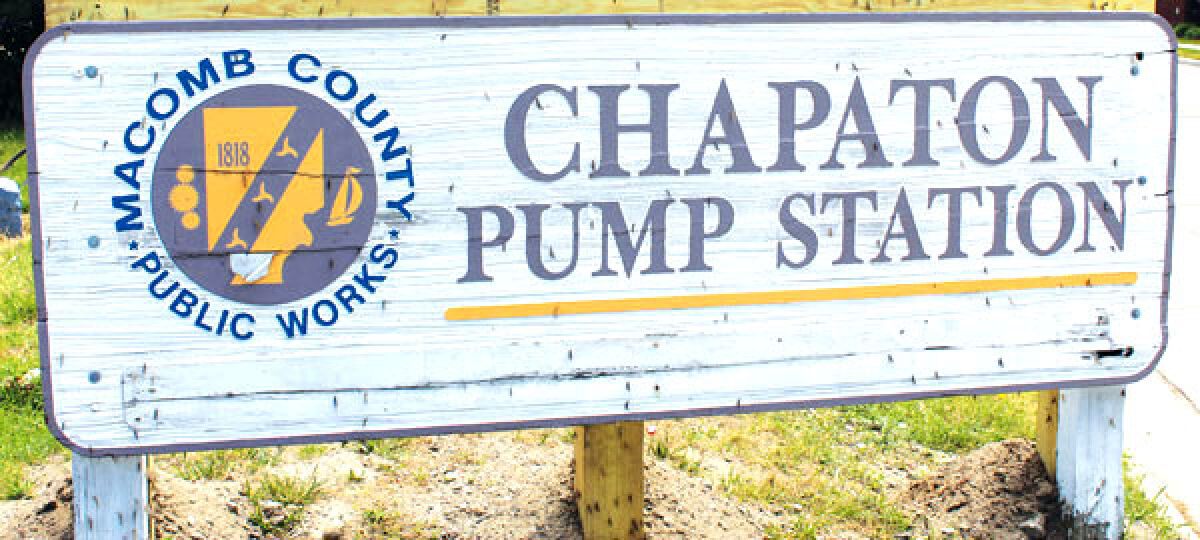ST. CLAIR SHORES — The St. Clair Shores City Council approved the city’s budget and other agenda items at a city council meeting on June 5.
The agenda items were presented by Renae Warnke, then the interim finance director and treasurer. Warnke was named the interim finance director in early April when the previous finance director left the city. City Manager Dustin Lent said near the end of the meeting she had about three months to put the budget together and commended her for her hard work.
Warnke was named the city’s finance director on June 19.
“Renae worked tirelessly to put together this budget, make sure it was balanced, and I just wanted to commend Renae on her first budget and getting done in approximately three months,” Lent said.
The full list of items to adopt or approve included setting the millage rates for tax bills, ordinance amendments related to sanitary sewer and water rates, setting the stormwater user charge, and adopting the budget for the 2023-2024 fiscal year. All of the items were approved with votes of 7-0.
The final budget is balanced and according to the meeting minutes for June 5, general fund revenues are projected at $44,714,754 with expenditures at $44,648,546 — a surplus of $66,208.
Warnke said the millage rates have been published and that they have not changed since they were published. She said the rates sit at 23.624 mills, which she said is slightly increased from last year by about 0.215 mills. A few minor changes were included to cover the police and fire pension fund and other things.
Councilman John Caron said when residents get their tax bills in July, they will see the taxable values have gone up by 5%. This percentage is capped by law at 5% or the rate of inflation, whichever is less. Caron said he knows the residents have been impacted by that.
“All of us are up here, we’ve never been in a situation where the taxable values went up that much,” he said. “That’s new ground for us.”
The city has also been hit by inflation, Caron said, and they’ve had to deal with other increases on multiple contracts.
Councilman and Mayor Pro Tem Chris Vitale also spoke about the tax increase and explained a possible reason for it. Vitale said the federal government “never spent as it did in the last three years.”
“And now, everybody’s money is worth less and this is those chickens coming home to roost,” Vitale said.
There were no changes to the sanitary sewer rates, Warnke said, and they sit at $69.32 per 1,000 cubic feet of water consumed per quarter. However, she said the industrial waste charge, which is charged to industrial businesses, will see a slight increase.
Councilman Dave Rubello warned residents to watch their water use due to how expensive it is becoming.
“Really watch how much water you’re using because this stuff is not cheap anymore, that’s for sure,” Rubello said.
Warnke said a study was also performed by Anderson, Eckstein, & Westrick Inc. to get the water rates for the budget. From that study, the company recommended increasing water rates by 9.8%.
“Which results in, overall, (a) 4 1/2% increase,” Warnke said. “That equates to approximately $2.96 per month for the average residential user. So less than $36 a year. This would change the water (rate) from $5.674 right now for 1,000 cubic feet of water up to $6.230 and increase the readiness to serve charge also.”
Due to a lawsuit from a couple years back, the city had to change the way they billed the stormwater user charge for 2024, Warnke said. Each parcel is evaluated for “pervious and impervious values” and the costs are then divided throughout all the parcels based on the pervious and impervious percentages.
“This year, that amount is $2,545,982 that would be spread among all the parcels,” Warnke said.
Councilwoman Candice Rusie said they do have a specific chart when the fees were first created that calculates each property’s property runoff potential, or PRP.
“Just for residents, we do have that calculated down to the actual parcel property level in terms of what percentage of PRP there is,” Rusie said.
At the beginning of the meeting, a public hearing was held to allow residents to speak about the budget.
David Deacon spoke about the pool fees for residents and forgiving that fee for them to swim.
“We’re nickel and diming our residents,” Deacon said. “A hundred bucks for a family of four. What if they have six? I don’t know what the extra charge is. Our regulations don’t itemize that but I think it’s appropriate.”
Mayor Kip Walby answered Deacon after the hearing closed, stating the pool has been operating at a loss.
“It’s expensive to operate. It’s been a loss, we all know it’s been a loss for decades there. We run it as an amenity,” Walby said. “But there is a fee, yes, but it’s run, it takes a lot of people to run the pool and it’s expensive.”
 Publication select ▼
Publication select ▼



























